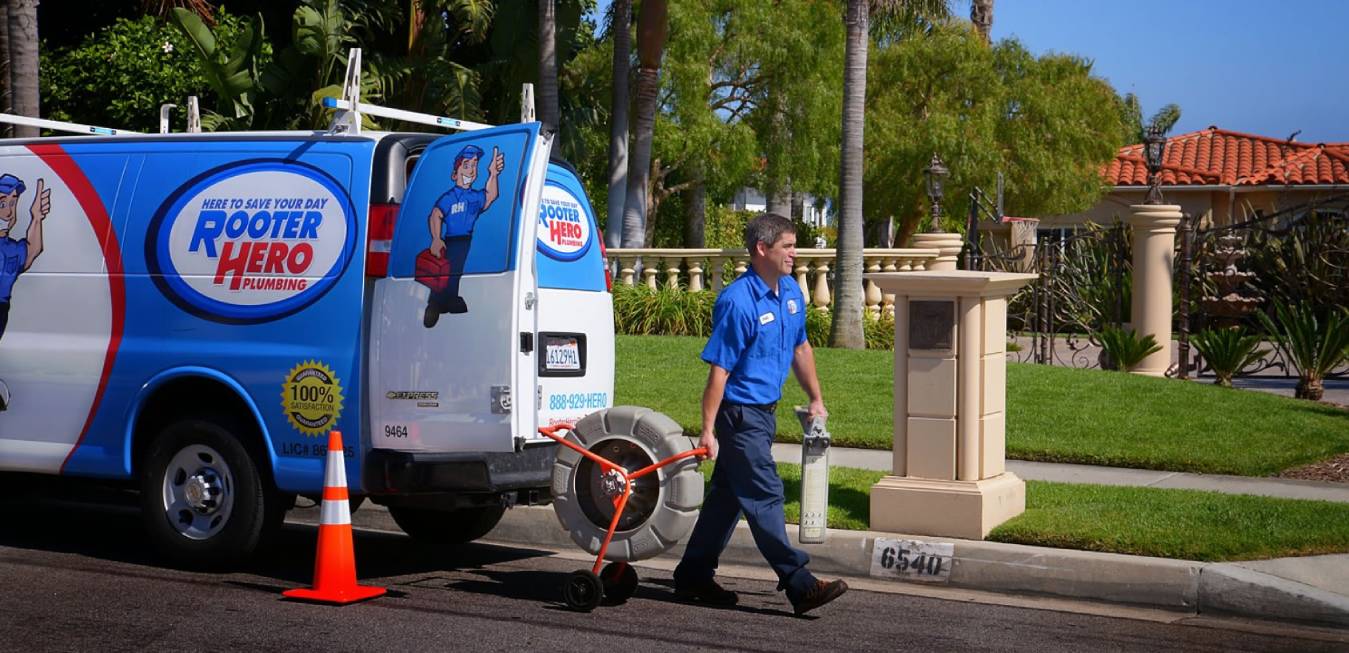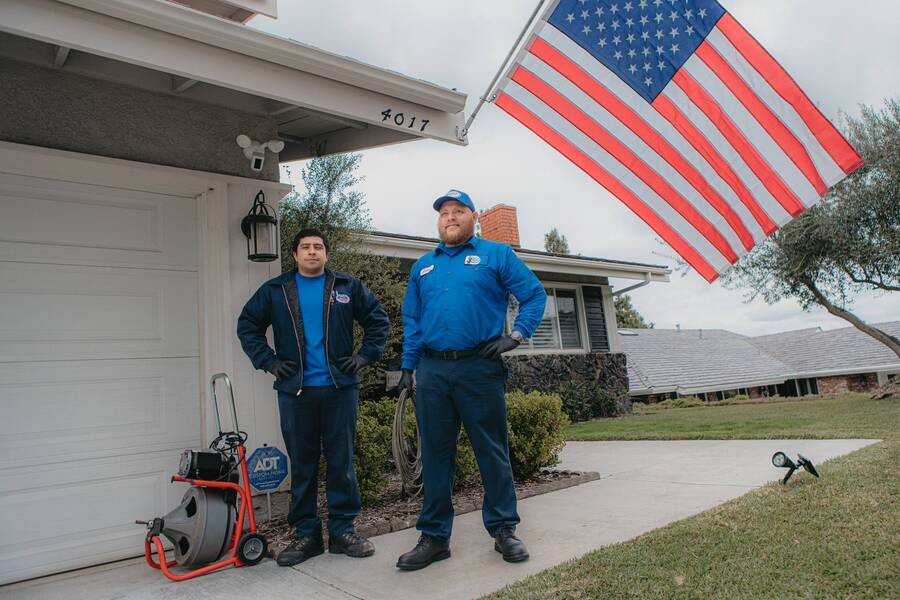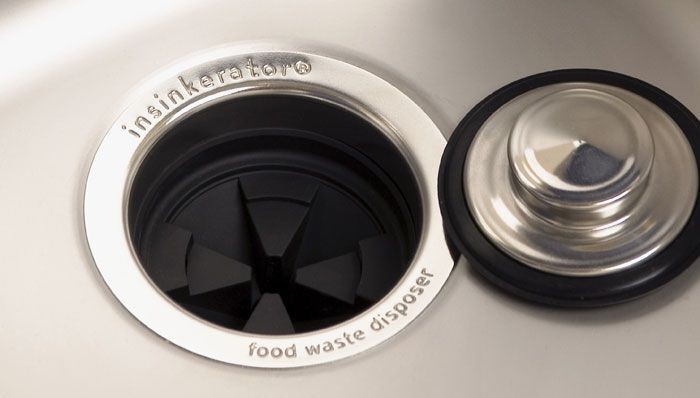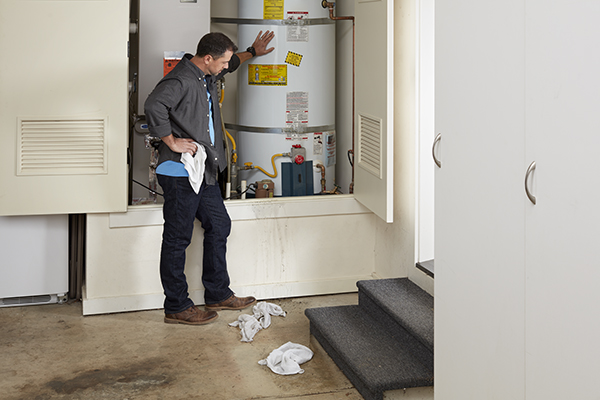
What To Do If Your Water Heater Is Leaking
A leaking water heater is nothing to take lightly. Even a minor leak can cause a lot of damage to your floors, sub-floors, and walls. If a leak is left for too long, it will only get worse, causing more damage and more expensive repairs. A leak coming from your water heater can be alarming, after all replacement can be an expensive event. However, depending on where the leak is located and the severity, you may be able to repair your water heater instead of replace it.
Why Swift Action Is Necessary
If your water is leaking it is best to respond quickly to prevent further damage. Water damage can occur quickly after the leak has sprung. In addition, it only takes a short while for mold to get a foothold. Mold thrives in warm, damp areas. This makes the area around your water heater the perfect breeding ground for mold spores. If left unchecked mold can do a lot of damage, and pose a health concern. People who have allergies or have weakened immune systems are particularly susceptible to the effects of mold exposure. 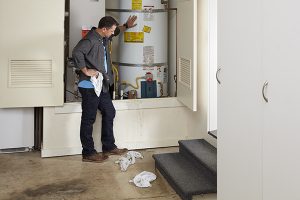 Another concern is flooding from your water heater. A small leak can eventually lead to a big leak. In rare occurrences complete failure of your water heater can lead to a rupture of the tank, leading to a pretty significant flood. In which case, significant damage is done, especially if it occurs while you are out of town.
Another concern is flooding from your water heater. A small leak can eventually lead to a big leak. In rare occurrences complete failure of your water heater can lead to a rupture of the tank, leading to a pretty significant flood. In which case, significant damage is done, especially if it occurs while you are out of town.
If Your Water Heater Is Leaking
If you discover that your water heater is leaking you need to act quickly. As we mentioned above, a small leak can quickly become a large leak. The first thing you will want to do is turn off your water heater. If your water heater is gas powered, look for the on/off switch located around the bottom of the tank. If your water heater is electric, go to your breaker box and turn off the circuit breaker corresponding to your water heater. The next step is to turn off the water. Preventing your tank from filling up can prevent excess water waste and prevent further damage to the surrounding area. Most tanks have a water shut off valve located at the top of the tank. If you are able to reach the shut off valve it is a matter of switching the lever to the closed position. However, if you are unable to locate the shut off valve or cannot reach it, you will want to turn of the water at your home’s main water shut off valve, usually located outside. Once you have shut off the power and the water supply, you need to contact your plumber. To determine the severity of the leak.
To Repair Or Replace That Is The Question
Sometimes, when your water heater is leaking it is not as serious as you might initially think. Sometimes what appears to be a leak, isn’t a leak at all, but a puddle caused by condensation. Further inspection of your water heater will be necessary to determine the source of the leak. In some circumstances your water heater can be repaired. There could be a leak around the cold water inlet or hot water outlet, the temperature or pressure release valve, or the drain valve. In which case repairs are pretty straight forward. However, if the internal tank is leaking, the entire unit will need to be replaced. 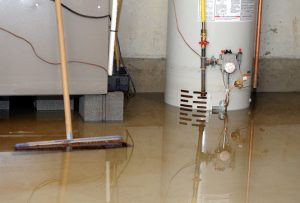 It is best to consult your with your plumber about what your best options are. Tank storage water heater typically lasts about 10-12 years. The better maintained your water heater is the longer it will last. Regular maintenance includes draining and flushing of the tank at least once a year. To learn more about water heater maintenance or to schedule repair contact the experts at Rooter Hero today!
It is best to consult your with your plumber about what your best options are. Tank storage water heater typically lasts about 10-12 years. The better maintained your water heater is the longer it will last. Regular maintenance includes draining and flushing of the tank at least once a year. To learn more about water heater maintenance or to schedule repair contact the experts at Rooter Hero today!  Related Articles 3 Tips for Keeping Your Basement Dry and Leak-Free Eco-Friendly Ways to Unclog Drains Why Is My Water Pressure So Low?
Related Articles 3 Tips for Keeping Your Basement Dry and Leak-Free Eco-Friendly Ways to Unclog Drains Why Is My Water Pressure So Low?



